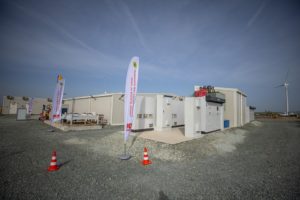PeliPartners: The new change in legislation for authorising renewable energy projects needs further clarification

The legislation for authorising the construction of renewable energy projects has undergone a new amendment, aimed at creating common authorisation conditions for projects built in and outside the urban area. However, the new provisions may create a contradictory legislative framework and do not provide developers and investors with much-needed legislative clarity in this priority area, according to an analysis by law firm PeliPartners.
Law No 166/2023 on the amendment and completion of Law No 350/2001 on spatial and urban planning and on the completion of Law No 50/1991 on the authorisation of construction works entered into force on 10 June 2023.
“This is the latest in a series of relatively recent changes to the legislative framework governing the authorisation of construction of renewable energy projects, implemented by Law No. 254/2022 on the amendment of the Land Fund Law No. 18/1991 and Law No. 21/2023 on the amendment of Law No. 50/1991 on the authorisation of construction works. Although the intention of Law no. 166/2023 is commendable, the specific mode of regulation does not provide sufficient clarity and may generate different interpretations and implementations of its provisions”, explained Mădălina Fildan, Senior Associate PeliPartners.
The new regulation aims to create a coherent legislative and administrative framework without regulatory barriers to facilitate the achievement of the European Union’s binding target of at least 32% renewable energy by 2030.
The explanatory memorandum of the new law justifies the need to exempt renewable energy projects located in extra-muros areas from the obligation to draw up a PUZ, a facility already in force under Law 21/2023. However, the text of Law No 166/2023 envisages the extension of this facility to renewable energy projects located in intra-muros areas.
Thus, Law No 166/2023 supplements Article 111 of Law No 50/1991 on the authorisation of construction works. According to this addition, building permits may be issued without prior preparation, approval and endorsement of a planning documentation for renewable energy projects located intra-muros and extra-muros.
PeliPartners’ analysis shows that the same article already stipulated that building permits may be issued without prior preparation, approval and endorsement of a planning documentation for those investment objectives referred to in Article (2) (j) of the Land Law No 18/1991, i.e. for solar, wind, biomass, bioliquids and biogas energy production capacities, electricity storage units, transformer stations or other similar systems located on extra-muros agricultural lands of class III, IV and V with a maximum area of 50 ha.
“Consequently, at this moment, the regulation contained in Law no. 50/1991 is contradictory with regard to the exemption from the obligation to draw up an urban planning document for renewable energy projects located outside city limits: letter g) of art. 111 of Law no. Article 111(g) of Law No. 50/1991 limits this facility to projects located on extra-murros agricultural land of class III, IV and V with anarea of maximum 50 ha, while letter i) of the same article seems to extend the facility to renewable energy projects located on any land outside the urban area”, explained Mădălina Fildan.
In an attempt to provide a coherent regulation, Law No 166/2023 also amends the provisions of Law No 350/2001 on spatial and urban planning, also regulating in this law that the lack of an urban planning documentation does not prevent the issuance of a building permit for renewable energy projects located in the extra-murros or intra-murros areas.
PeliPartners’ analysis shows that the regulation is incomplete, as Law No 166/2023 leaves unchanged other specific provisions of Law No 350/2001 which require a zoning plan to be drawn up for projects located in technology zones. In the absence of a clear definition of technological zones, it could be argued that these also include electricity generation capacities, thus making it compulsory to draw up and approve zonal urban plans for such projects.















